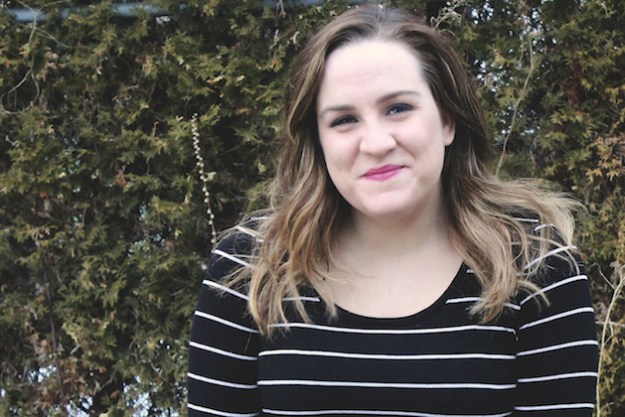This Is What Depression Looks Like
Earlier this year, I came off of my antidepressant medication. It was a poorly thought out decision, (I have a pretty difficult history with depression and mental illness), and I did it cold turkey, even though I knew better. Still, I thought I’d be okay.
I wasn’t okay.
The thing about antidepressants is that, if they work well for you, they inevitably make you feel better, like your normal self. It’s a myth that SSRIs make you feel artificially happy (a particularly frustrating one, if you ask me, because it keeps a lot of people who probably need medication from trying it). Finding a medication that works doesn’t mean you suddenly feel OVERJOYED, it just means that you feel like yourself again. Like you can recognize the voice inside your head. Like you can finally remember what it’s like to be a person who has energy to do things and who doesn’t feel like everything in life is useless and dumb and completely futile.
But the downside is that, if you’ve been on medication long enough, feeling like your usual, familiar self, you might start to think that you don’t need it anymore. That you’re okay, that you’re better, that you were only feeling depressed because of that thing that happened that one time but that thing is over now and you’re fine.
You’re not fine.
You weren’t depressed because of that thing that happened. Depression IS the thing that happened.
It took me a long while to go back to see my doctor after I started spiraling out, but when I finally did she said, “don’t worry, we will fix this.” And then she did. She changed my medication and I started taking it and then I started to feel better.
Before that happened though, I got a lot worse. I started thinking things I know I don’t actually think, like, “Maybe I don’t actually like being a stay-at-home-mom” and “having two-year-olds is awful”. Then it became, “why did we think having kids was a good idea?” And then, “why do we bother trying to exist in a terrible world where bad things happen to good people and we work our butts off to afford overpriced homes and stuff we don’t need and then we just get cancer and die?” (Depression thoughts tend to escalate quickly.)
I knew that I was finally getting better though, because I went back on my medication and then suddenly, I didn’t think those things anymore. Or, rather, I did think them, I guess, sometimes (the world is a terrible place in a lot of ways, and bad things do happen to good people and why does cancer have to take so many people’s lives while they’re still young?), but I was able to have other thoughts too, hopeful thoughts, thoughts that normal, healthy people have that allow them to live their lives even despite these sad, awful truths. The dark thoughts could enter my brain and then leave again, instead of holding me hostage and taking up all of the room where hope and brightness and strength might otherwise reside.
I knew that I was getting better because I stopped dreading the moment I heard my kids waking up from their naps because it meant I had to muster the energy to be a mom.
I knew that I was getting better because I could get out of bed in the morning feeling tired and grumpy like usual, instead of feeling like I wanted to hide underneath the covers for the rest of the day.
I knew that I was getting better because I could leave the house and do normal things without feeling anxious about it.
I knew that I was getting better because I could make dinner for my family at the end of the day instead of ordering yet another pizza because I was so exhausted and overwhelmed.
The gripe I have with mental health awareness in North America (I have no idea what it’s like in other countries) is that it’s still discussed in such an abstract way. It’s something other people have, and those people should get help. But who are those people and what does it really mean to be a person living with a mental illness? How do you get help and what does that look like and how do you know when you need it?
Well, this is what it’s like to live with a mental illness. Being medicated and thinking you’re okay and coming off your medication and losing it completely. Identifying with a voice inside your head that is telling you that everything is awful, and that this is how you really think and feel and that anytime you felt happy and normal, you were wrong. That is when you know you need help, and you get it by going to your doctor, or your therapist, or a crisis hotline worker, or your spouse or your friend and saying, “help me.” That is what depression looks like.
And this is what it looks like when you’re getting better.
*****
 Alana Romain is a freelance writer, mental illness stigma-fighter, and mother of hilarious toddler twins born almost four months before their due date. You can find her on Twitter, Facebook, Instagram, and at www.youandmeandeveryoneelse.com.
Alana Romain is a freelance writer, mental illness stigma-fighter, and mother of hilarious toddler twins born almost four months before their due date. You can find her on Twitter, Facebook, Instagram, and at www.youandmeandeveryoneelse.com.
If you enjoyed this post, please take a few moments to leave a comment or to share with your friends using the little share buttons below.








Leave A Comment